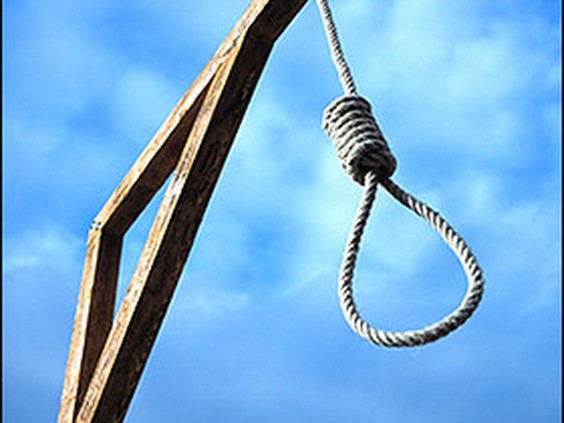Court Sentenced Cynthia Osokogu’s Killers To Death By Hanging
Justice Olabisi Akinlade of the Lagos State High Court in Igbosere yesterday convicted and sentenced two men Okwumo Nwabufo and Olisaeloka Ezike to death by hanging for the gruesome murder of Cynthia Osokogu, a postgraduate student of Nassarawa State University.
Justice Akinlade sentenced the duo to death after she found them guilty of murdering Cynthia Osokogu by administering Rohypnol Flunitrazepan tablet into her drink, chaining her hands and legs and strangled her to death.
The judge held that she found the convict guilty of the six count charge of conspiracy, murder, stealing, reckless negligence and possession of stolen goods brought against them by the Lagos State government on the strength of the evidence and exhibits presented by the prosecution and also based in their confessional statement to the police.
The court also sentenced Nwabufo and Ezike to 14 years in jail for conspiracy to murder, three years for conspiracy to commit felony and another three years for stealing.
The court, however, discharged and acquitted Orji Osita, the third accused person of negligently selling the Rohypnol Flunitrazepan tablets to Ezike, the second defendant without a doctors prescription and without showing due care.
He was freed on the ground that the prosecution failed to prove it case against Orji beyond reasonable doubt thereby also failing to link him to the crime.
Justice Akinlade also discharged and acquitted the fourth accused person, Ezike Nonso, the man who allegedly bought Cynthia’s stolen blackberry bold 5.
He was charged for been in possession of a stolen phone, but the court held that he was able to explain how he came into procession of the phone.
The four men were first arraigned before a Lagos State Magistrate’s court presided over by Mrs O S Aka- Bashorun on September 26, 2012 and later re-arraigned before Justice Olabisi Akinlade on February 8, 2013.
The Lagos State government had told the court that the late Osokogu was allegedly drugged, robbed and raped in Room C1, Cosmilla Hotel, Lakeview Estate, Amuwo Odofin, Festac Town, Lagos.
The late Cynthia is the only daughter of a Retd. Major Frank Osokogu. She was a post-graduate student and the owner of a popular fashion store in Nassarawa state, Nigeria.
She met with her killers on the social media platform, Facebook social.
Her killers had earlier confessed to the police that they lured her to Lagos from her base in Nassarawa State under the pretext that they are also into clothing business.
After receiving her at the Murtala Muhammed airport in Lagos, they took her to a hotel in Festac Town.
Both Nwabufo and Ezike confessed to the police that they later put Rohyenol tablet in her Ribena drink and then unlawfully had sexual intercourse with the deceased without her consent and thereby committed an offence punishable under Section 258(1) of the Criminal Code Law of Lagos State of Nigeria, 2011.
After discovering that Cynthia did not have lot of money on her as they earlier presumed, and having raped her for 12 hours and later strangled her.
Following the arrest and subsequent parade of Cynthia’s Killers, three more ladies came forward, saying they were once victims of the alleged murderers.
The three women reportedly went to Festac Police Command to write a statement about how they were drugged, raped and robbed by the suspects now facing trial.
The convicts also robed Cynthia of her Blackberry handset, Bold 5 model, International Passport with No- AO1249397 DATED July 3, 2009, National Driver’s licence with No- GRE0002AA dated March 15, 2010, a pair of shoes, hand bag, artificial sex toy vibrator, Jewry pack containing 3 wrist watches, 4 rings, 3 pairs of earrings, 1 pendant, 1 necklace, hand chain and a single earring value of the property are yet to be ascertained.
To prove its case, the state called 10 witness while the accused persons testified for themselves.
In the judgement, Justice Akinlade identified only one issue for determination, that whether the prosecution has been able to prove its case beyond reasonable doubt.
On this the court noted that beyond reasonable doubt is not beyond all shadow of doubt and that the prosecution had done this with all the evidences and exhibits presented in support of the case.




